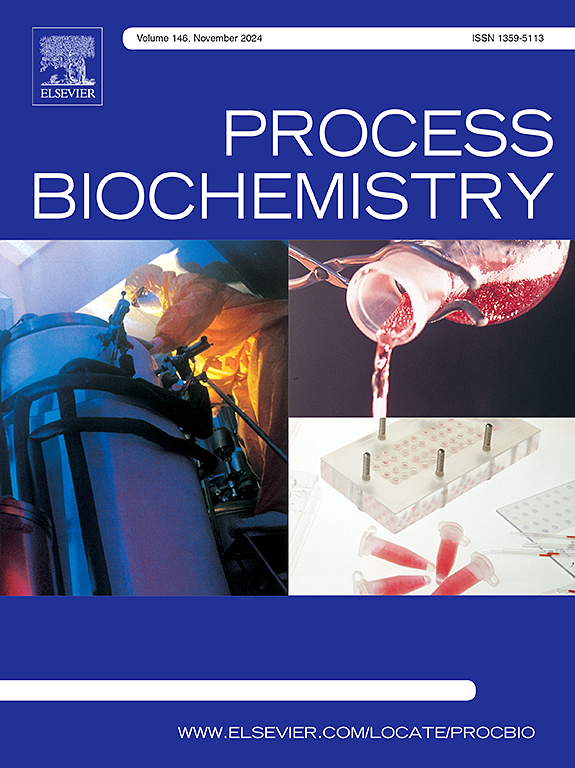肺癌治疗新策略:5-氟尿嘧啶-龙胆酸生物素包被给药系统
IF 4
3区 生物学
Q2 BIOCHEMISTRY & MOLECULAR BIOLOGY
引用次数: 0
摘要
由于肺癌的高死亡率和与常规化疗相关的全身毒性,它继续构成一个重大的治疗挑战。为了解决迫切需要更有选择性和更有效的治疗策略,本研究提出了一种新的生物基纳米治疗产品的设计和开发:生物素功能化聚乳酸-羟基乙酸纳米颗粒(BNPs)共负载5-氟尿嘧啶(5-FU)和龙胆酸(GA)。这种双重药物负载纳米系统被设计用于增强A549非小细胞肺癌细胞的细胞内递送和治疗精度,A549非小细胞肺癌细胞表面表达生物素阳性受体。利用FT-IR、XRD、SEM和TEM等物理化学表征手段证实了纳米颗粒的成功制备,并具有合适的尺寸和表面性能。体外实验表明,与非靶向纳米颗粒和游离药物组合相比,BNPs表现出显着增强的抗癌活性,在48 h的处理后,IC₅0值显着降低至0.35 mM。BNPs还能有效抑制细胞活力、迁移、增殖和集落形成,同时诱导细胞凋亡、自噬、氧化应激和线粒体功能障碍——这些都是靶向癌细胞死亡的标志。本研究将生物素介导的靶向与协同双药策略相结合,为肺癌的选择性治疗提供了一种有前景的创新生物产品候选物,为先进、精准的纳米医学平台提供了新的方向。本文章由计算机程序翻译,如有差异,请以英文原文为准。
A new strategy for lung cancer treatment: Biotin-coated drug delivery system loaded with 5-fluorouracil and gentisic acid
Lung cancer continues to pose a significant therapeutic challenge due to its high mortality rate and the systemic toxicity associated with conventional chemotherapeutics. Addressing the urgent need for more selective and effective treatment strategies, this study presents the design and development of a novel bio-based nanotherapeutic product: biotin-functionalized poly(lactic-co-glycolic acid) nanoparticles (BNPs) co-loaded with 5-Fluorouracil (5-FU) and Gentisic Acid (GA). This dual-drug-loaded nanosystem was engineered to enhance intracellular delivery and therapeutic precision against A549 non-small cell lung cancer cells, which express biotin-positive receptors on their surface. Physicochemical characterization using FT-IR, XRD, SEM, and TEM confirmed the successful fabrication of uniform and stable nanoparticles with appropriate size and surface properties. In vitro experiments demonstrated that BNPs exhibited significantly enhanced anticancer activity compared to non-targeted nanoparticles and free drug combinations, with a notably low IC₅₀ value of 0.35 mM after 48 h of treatment. BNPs also effectively inhibited cell viability, migration, proliferation, and colony formation, while inducing apoptosis, autophagy, oxidative stress, and mitochondrial dysfunction—hallmarks of targeted cancer cell death. By integrating biotin-mediated targeting with a synergistic dual-drug strategy, this study introduces a promising and innovative bio-product candidate for the selective treatment of lung cancer, offering a new direction for advanced, precision-oriented nanomedicine platforms.
求助全文
通过发布文献求助,成功后即可免费获取论文全文。
去求助
来源期刊

Process Biochemistry
生物-工程:化工
CiteScore
8.30
自引率
4.50%
发文量
374
审稿时长
53 days
期刊介绍:
Process Biochemistry is an application-orientated research journal devoted to reporting advances with originality and novelty, in the science and technology of the processes involving bioactive molecules and living organisms. These processes concern the production of useful metabolites or materials, or the removal of toxic compounds using tools and methods of current biology and engineering. Its main areas of interest include novel bioprocesses and enabling technologies (such as nanobiotechnology, tissue engineering, directed evolution, metabolic engineering, systems biology, and synthetic biology) applicable in food (nutraceutical), healthcare (medical, pharmaceutical, cosmetic), energy (biofuels), environmental, and biorefinery industries and their underlying biological and engineering principles.
 求助内容:
求助内容: 应助结果提醒方式:
应助结果提醒方式:


